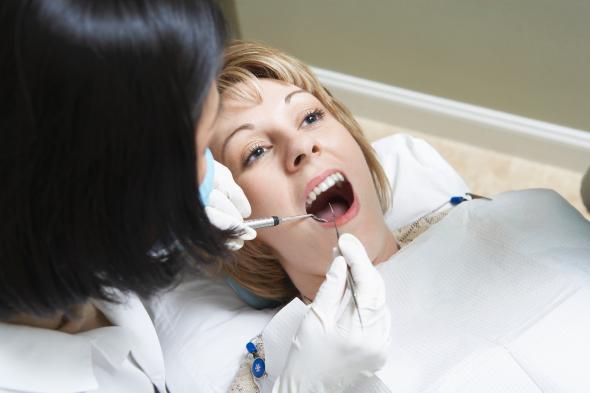Florida lawmakers may be hostile to comprehensive sex education, but they have no problem leaving reproductive health care to elementary school nurses’ offices. To back up anti-abortion omnibus bill HB 1411, which passed the state legislature earlier this month, conservative legislators have offered a list of places women can go for birth control, pap smears, and other reproductive services once Planned Parenthood is barred from taking Medicaid. That list includes dozens of elementary and middle schools, several dental practices, and at least one optometry center.
If Gov. Rick Scott signs HB 1411, the bill will, for all practical purposes, defund Planned Parenthood by prohibiting state-funded organizations from working with health centers that provide abortions in any cases other than rape, incest, or conditions that threaten the pregnant woman’s life. Women on Medicaid, for instance, will not be able to obtain contraception or any other medical services, abortion-related or not, from Planned Parenthood or any other abortion provider.
The Supreme Court has placed an ambiguous limit on states’ ability to restrict abortion. In order to maintain that the law does not impose an “undue burden” on women—a threshold established by 1992’s Planned Parenthood v. Casey—lawmakers must prove that women are still able to obtain an abortion in the state. Though that threshold doesn’t apply to publicly funded reproductive health care, Florida Democratic Rep. Lori Berman demanded that the bill’s co-sponsor, Colleen Burton, prove her claim that there will still be plenty of places for people, especially women in poverty, to get breast exams, contraception, and the like.
The list of federally qualified health centers that Burton claims provide “family planning services” is laughable, mainly because it’s half-populated by K-12 schools. Nevertheless, proponents of HB 1411 have used this list to pooh-pooh concerns for women’s health, claiming that there are 29 public health clinics for every Planned Parenthood in the state; therefore, the argument goes, no poor women will miss Planned Parenthood when it’s gone. The Guardian reports that in 2010, according to Guttmacher Institute data, there were just five public health clinics that offered family planning services for every Florida Planned Parenthood.
Anti-choice legislators in Ohio and Louisiana have pulled similar tricks, shrugging off warnings of a reproductive health care shortage by recommending that their states’ women get UTI treatment and STI screenings from food banks and ophthalmologists.
State funding for reproductive health care is just one of the critical needs HB 1411 has placed on Scott’s chopping block. Abortion access is at stake, too: The bill would force abortion providers to maintain admitting privileges at nearby hospitals, a requirement currently under review by the Supreme Court as it applies to Texas in Whole Woman’s Health v. Hellerstedt. The Texas law has contributed to the closure of more than half the state’s clinics, forcing abortion seekers to drive hundreds of miles for the procedure, then stay the night or make a second trip because of a law that requires two visits 24 hours apart. Florida’s bill would likely have a similar effect, in part because many hospitals are reluctant to support doctors who provide abortions. A Supreme Court decision that ruled the Texas law an undue burden would strike down that portion of HB 1411; unfortunately, the remainder of the measure would still send women on the quixotic quest to obtain important reproductive care from nurses tasked with treating schoolyard scrapes.
